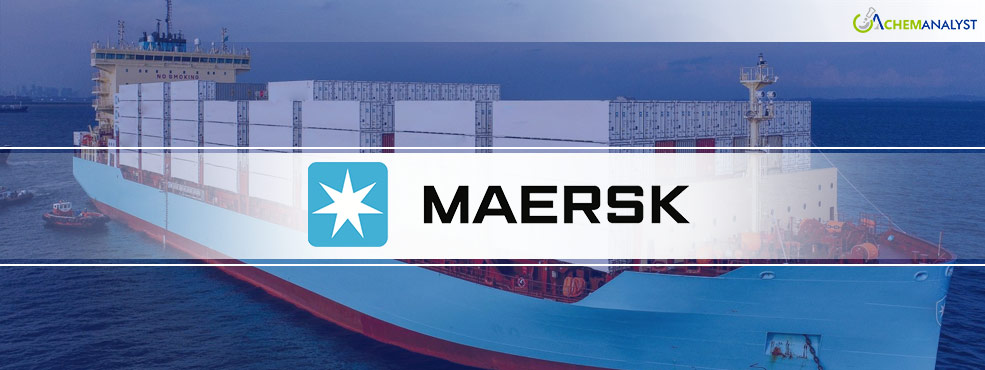Welcome To ChemAnalyst

Epson has partnered with Maersk, a global leader in shipping and logistics, to reduce greenhouse gas (GHG) emissions by using sustainable fuels such as biodiesel and green methanol for its ocean transportation to Europe. This collaboration is part of a three-year program aimed at increasing the use of GHG-reduced fuels for container shipping. It marks a significant step towards Epson’s commitment to becoming carbon-negative and free from underground resources by 2050.
Maersk’s ECO Delivery Ocean product enables cargo owners to lower GHG emissions by up to 82% compared to traditional fossil-fuel-powered shipping. Epson’s decarbonization strategy is central to its EPSON 25 Renewed initiative, which focuses on achieving carbon-free logistics. In the first year of the program, the partnership is expected to cut down CO2e emissions by 230 tonnes.
As a leading global shipping company, Maersk is committed to achieving net-zero GHG emissions by 2040, positioning itself as a sustainability pioneer in the maritime industry. This includes deploying dual-fuel container ships powered by green methanol and other GHG-reducing initiatives in inland logistics, such as electric trucks and trains. Maersk’s sustainability efforts are recognized by its participation in the CDP Carbon Disclosure Project and its Platinum rating on Ecovadis. Its ECO Delivery service, launched in 2019, is designed to reduce emissions in ocean, inland, and air transport, aligning with the International Maritime Organization’s (IMO) goal of achieving net-zero emissions by 2050.
Kaisa Helena Tikk, Maersk's Head of Commercial Sustainability, highlighted the importance of collaboration in decarbonization efforts, emphasizing that partnerships with customers like Epson play a crucial role in reducing emissions quickly. She sees this collaboration as setting a benchmark for the shipping and logistics sectors.
Mark Robertson, Chief Supply Chain Officer at Epson Europe, emphasized that the partnership with Maersk is a vital step in Epson’s broader sustainability journey. By using emission-reduced fuels for inbound ocean transportation, Epson is significantly lowering its carbon footprint and setting a positive example for the electronics industry. Additionally, Epson is enhancing its sustainability efforts by optimizing container space, increasing capacity by more than 15% through improved logistics and product design.
Epson is aware that transitioning to GHG-reduced fuels can be costly at first, but recognizes it as an essential strategy for reducing ocean transport emissions. This collaboration with Maersk not only sets a precedent in the electronics sector, where the adoption of biodiesel and green methanol is rare, but also underscores Epson's commitment to sustainability. To ensure transparency and accurate tracking of emissions, Epson has integrated Shippeo software into its logistics system, enabling the company to measure its carbon footprint from the factory to final delivery.
The partnership with Maersk is just the beginning of Epson’s journey toward more sustainable logistics, demonstrating how collaboration can lead to a significant environmental impact and inspire others in the industry to follow suit.
We use cookies to deliver the best possible experience on our website. To learn more, visit our Privacy Policy. By continuing to use this site or by closing this box, you consent to our use of cookies. More info.
